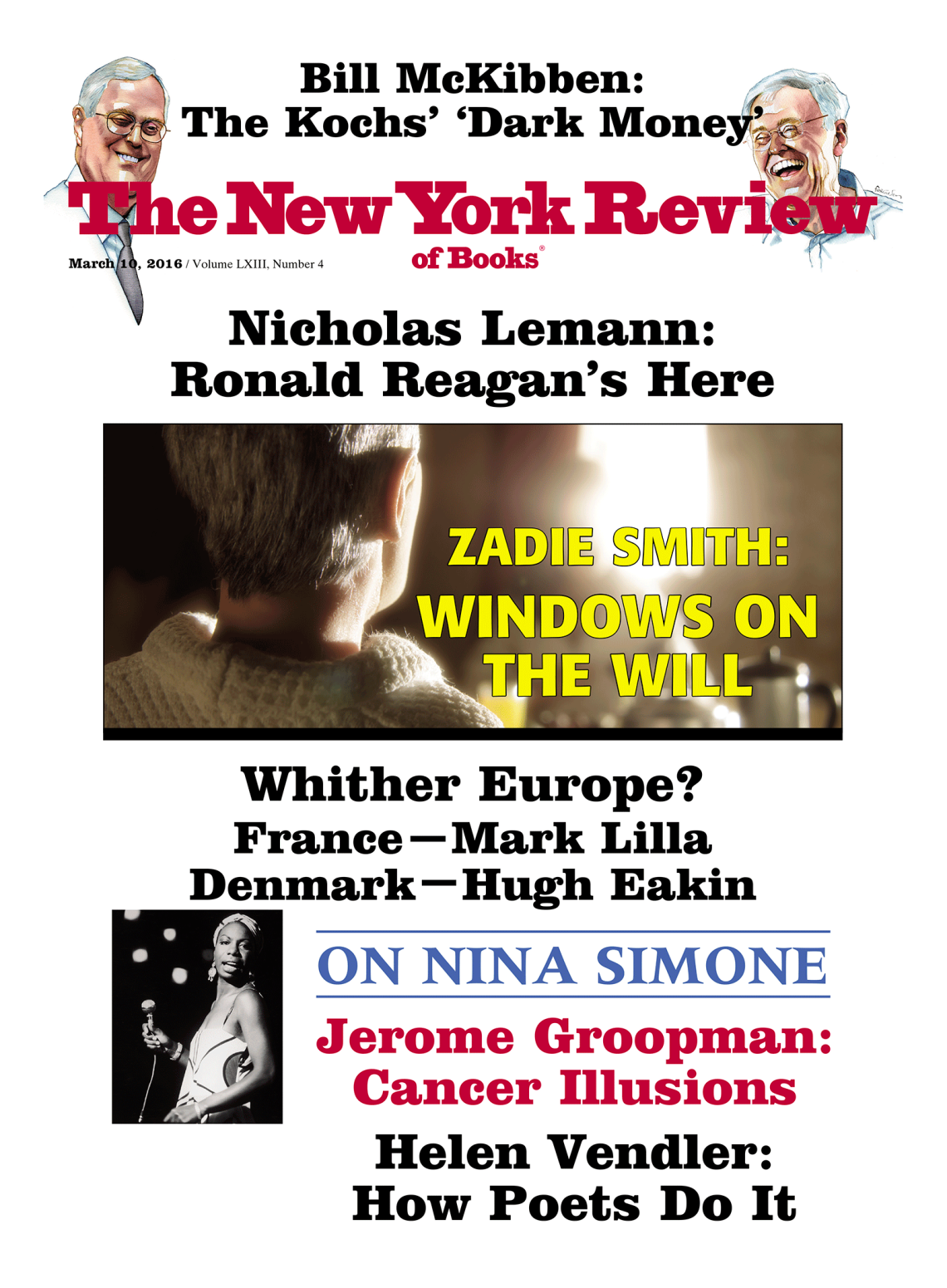In response to:
Parking the Big Money from the January 14, 2016 issue
To the Editors:
Cass Sunstein’s review of Gabriel Zucman’s The Hidden Wealth of Nations [NYR, January 14] erroneously claims that “Zucman is the first economist to produce specific numbers of this kind.” Actually, economists have been estimating the volume of missing offshore wealth for decades. For instance, in 2005 British economists Richard Murphy and John Christensen produced a widely published $11.5 trillion estimate. In 2011 James S. Henry, formerly director of economic research for McKinsey & Co., was commissioned by the Tax Justice Network to compile detailed estimates of offshore private wealth. Triangulating with three independent methodologies, including extensive statistical analysis and “investigative economics” involving interviews with private bankers, tax lawyers, and crooks, Henry identified $21–$32 trillion of “missing” wealth as of 2010. This provided The Economist’s cover story on February 16, 2013.
Zucman leans heavily on one IMF survey of traded assets for fifty countries, hunting mismatches between assets and liabilities. This is incomplete. Many assets are not unrecorded but misrecorded in the names of trustees or nominee directors, not beneficial owners. Since there is a recorded owner, there is no mismatch, hence Zucman omits this missing wealth. He also ignores some $5–$10 trillion of offshore non-financial assets like real estate, art, yachts, and gold.
So Zucman’s $7.6 trillion estimate of offshore wealth (in 2014 dollars) is way too low. His estimate for Latin America is just $700 billion, and for Argentina $100 billion. In contrast, recent studies by Argentine economists working with Henry have uncovered over $400 billion of offshore wealth for Argentina alone. Similar gaps exist for Russia, Mexico, Brazil, South Africa, Nigeria, and China, where $500 billion fled the country just in 2015.
Zucman underplays the crucial role of bankers and other enablers in the global haven industry. As detailed in Henry’s report—soon to be updated—the top fifty global banks were responsible for soliciting and concealing at least $12 trillion of the $21–$32 trillion, on behalf of the world’s elite. Ironically, many of these institutions helped create the 2008 financial crisis, and would not have survived without taxpayer-funded bailouts.
Sunstein is also wrong to laud recent US tax enforcement efforts. Banks like UBS and Credit Suisse, caught red-handed facilitating tax dodging in the US, received light penalties. The Foreign Account Tax Compliance Act (FATCA) helps preserve the US as a haven by offering very limited reciprocity to other countries. This threatens to undermine the OECD’s far more comprehensive global plan for information-sharing. Indeed, as any offshore wealth adviser knows, illicit money from across the planet is pouring into tax haven USA.
John Christensen
Executive Director
Tax Justice Network
London, England
James Henry
Senior Fellow
Columbia University
New York City
Cass R. Sunstein replies:
I am grateful for the response by John Christensen and James Henry of the Tax Justice Network (TJN), but also puzzled by it. Gabriel Zucman and I are in fundamental agreement with the TJN: tax havens are an extremely serious problem and far more needs to be done about them.
The Foreign Account Tax Compliance Act is a significant step in the right direction, because it requires all foreign banks to identify any American citizens among their clients—and to disclose to the Internal Revenue Service the amount of their holdings and any dividends and interest paid on them. (The US Department of Treasury has done, and continues to do, a great deal of work on the issue of reciprocity.) With Zucman, I agree that FATCA is not nearly enough, because a global solution is required.
I stand by my claim about Zucman’s originality. Citing their own work, Christensen and Henry claim that they were there first, and they have indeed made valuable contributions. But “investigative economics,” extrapolating numbers from “interviews with private bankers, tax lawyers, and crooks,” involves a high degree of speculation, and the numbers in Henry’s illuminating report, commissioned and published by the TJN, lack the rigor and care of Zucman’s peer-reviewed estimates. I agree, however, that his estimates may be too low.


